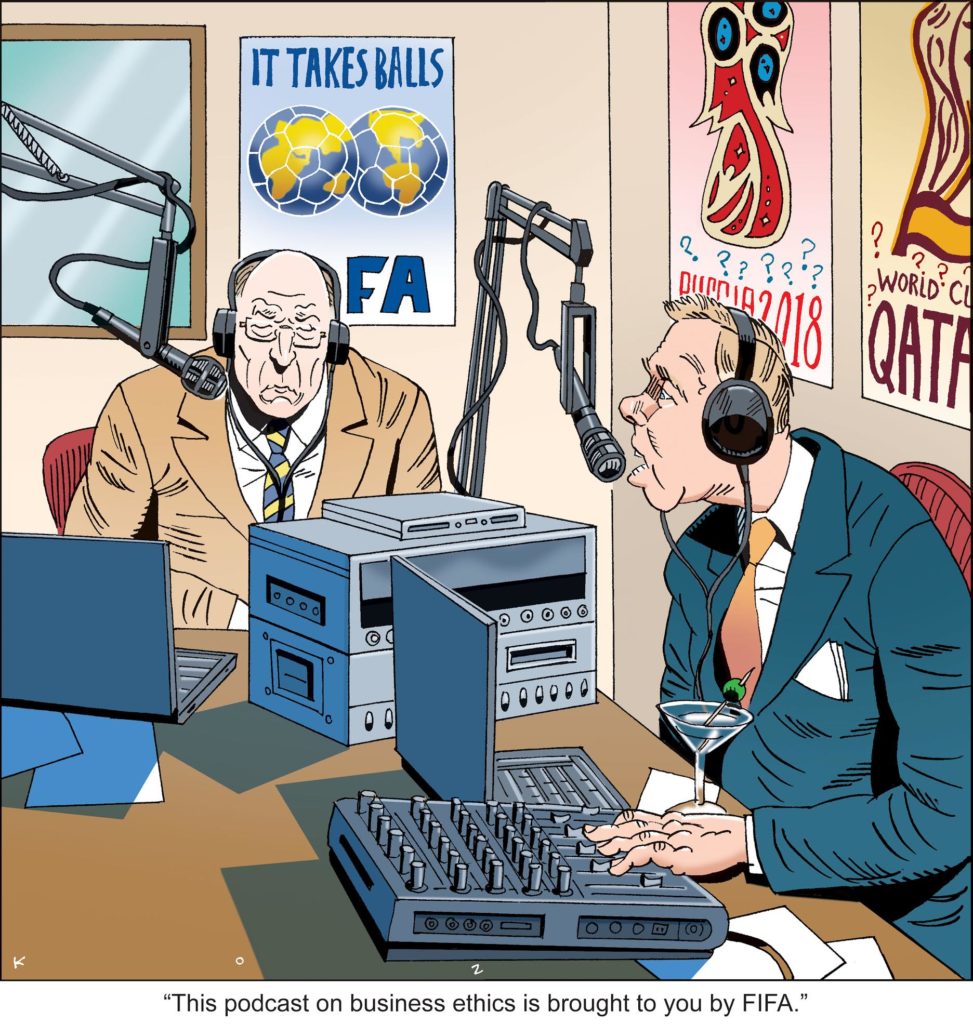Brands
Contently Comic: Sponsored Insanity
Whenever I think about sponsorships—which isn’t very often, thankfully—sports jerseys always pop into my head. In America, the four major sports don’t let brands put their logos on uniforms, aside from the specific apparel company that produces them. You won’t see an Uber logo on a Lakers jersey, even though half the crowd probably takes Ubers to get home after the game. I can’t buy a Knicks jersey that has “Prilosec” written across the chest, although the masochistic part of me really wishes I could. There’s been discussion about changing that policy to bring in extra revenue, but for now, those talks have been shelved; fans don’t want the advertising blatantly shoved in their faces.
That attitude is somewhat futile since just about every other part of professional sports is sponsored, from the scoreboards to the stadiums to the shirts that get fired out of t-shirt guns, but it’s still important to think about. What if BP had been a jersey sponsor for the New Orleans Saints prior to the oil spill in 2010? What if Enron wanted to get more exposure in the 90s by putting its logo on Houston Astros uniforms? Just imagine how poorly those scenarios would’ve ended.
(And while the rest of the world may be used to seeing brands stamped on soccer kits, that hasn’t always worked out so well, either.)
For last week’s Contently Comic, Joe Lazauskas wrote about “Snapchat Syndrome“—the way brands piggyback on any hot new trend as soon as it becomes popular, even if doing so isn’t a smart long-term move. This week’s comic riffs off of a related theme: If brands aren’t going to play around with a shiny new toy, then they’re definitely going to sponsor it.
Brands will sponsor anything. If people create any type of content, a company will slap its name on it and hope the exposure will get you to slap down a credit card to buy something in the future. But pursuing exposure for exposure’s sake is rarely a healthy approach. Brand lift comes down to fit. Case in point: Even though it’s unlikely that FIFA will ever get to sponsor a podcast about business ethics, we can all picture something like that happening.
The Internet is full of sponsored content that doesn’t fit with what surrounds it, even from publishers known for strong editorial judgment. This Daily Beast post sponsored by Pepsi is a prime example since it features a very basic infographic that doesn’t really tell a story or educate the reader at all.
Entertainment and sports may be products worth sponsoring, but they’re products that thrive on storytelling and conflict. If I’ve learned anything about the advertising world in my life, it’s that brands should try to avoid conflict unless they can bring a relevant perspective to the discussion. Attempting to capitalize on it only makes them look oblivious, inconsiderate, and money-hungry.
In May, FiveThirtyEight ran an interesting analysis of podcast sponsors, and when I was looking through the data while researching this article, I couldn’t stop shaking my head. A few fit their sponsors very well. (WWE bought some ad space during “The Steve Austin Show – Unleashed!”) Most did not. (Do you think anyone bought a Vermont Teddy Bear after listening to “The Adam Corolla Show”?)
Brands have to get smarter when handing over sponsorship dollars. Not just for their bottom lines, but for the sake of audiences everywhere.
This #hottake was brought to you by Banana Boat sunscreen. Just kidding—for now.
Get better at your job right now.
Read our monthly newsletter to master content marketing. It’s made for marketers, creators, and everyone in between.





